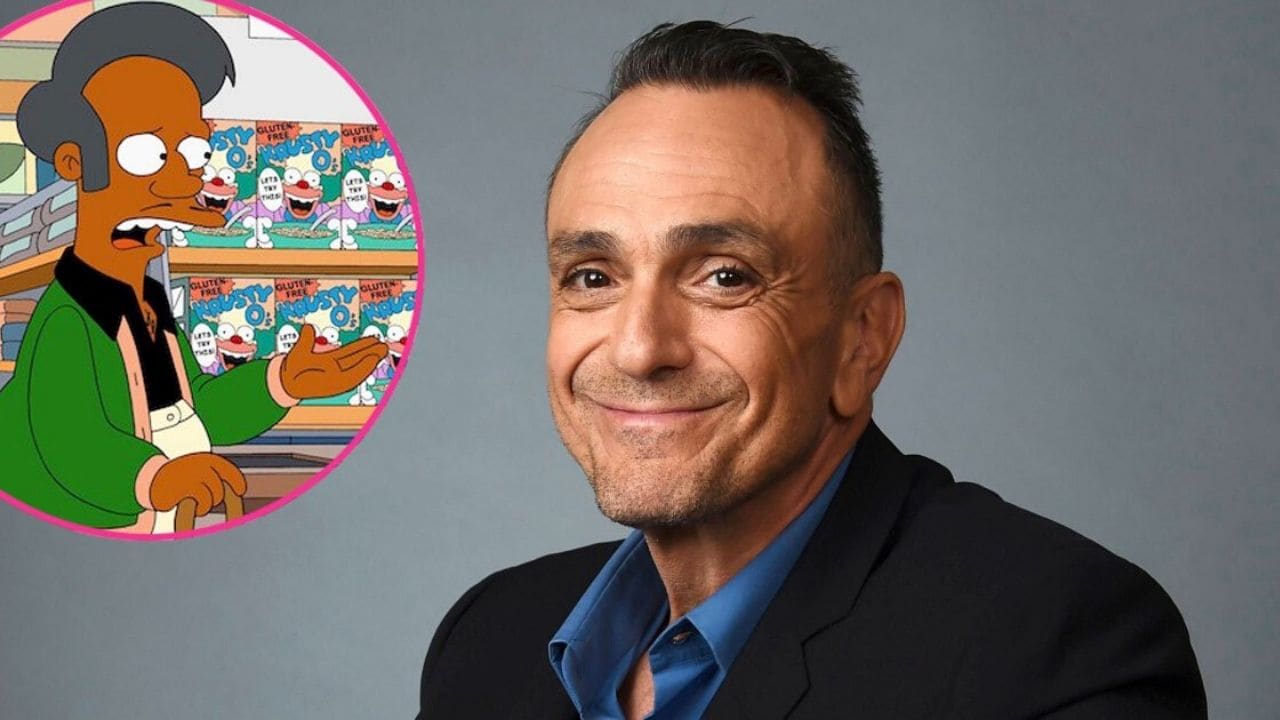The Simpsons voice star Hank Azaria reveals in a recent interview he has stepped down from his role of Apu Nahasapeemapetilon, the Indian immigrant proprietor running the convenience store Kwik-E-Mart, on the animated sitcom. However, the show has not yet released an official statement regarding the same. [caption id=“attachment_7923691” align=“alignnone” width=“1280”]
 Hank Azaria has voiced Apu since The Simpsons’ inception in 1989. Image from Twitter[/caption] During an interview with
/Film
, he says, “I won’t be doing the voice anymore, unless there’s some way to transition it or something. What they’re going to do with the character is their call.” He adds that the decision to longer voice Apu in the show is a mutual one. Ever since the inception of the show in 1989, Azaria lent his voice to the character, which stirred controversies for the longest time. One of the longest-running shows on American TV, The Simpsons came under intense scrutiny again in 2017 after comedian Hari Kondabolu’s documentary The Problem with Apu highlighted the stereotypical depiction of Indian immigrants in Hollywood. The controversy surrounding The Simpsons caught speed once again after the makers of the show, in the episode ‘No Good Read Goes Unpunished,’
addressed the character of Apu
, and received widespread criticism for its defense. In the episode, Lisa looked at a framed picture of Apu, and said, “Something that started decades ago, and was applauded and inoffensive, is now politically incorrect. What can you do?” Commenting on the episode, Kondabolu called the scene a “jab” at progress. Shortly after the episode was aired, Azaria appeared on The Late Show with Stephen Colbert, and said he hopes the show takes the step forward to increase inclusion as it is the “right thing to do.” He said, “I’ve given this a lot of thought and my eyes have been opened, and I think the most important thing is to listen to South Asian people, Indian people, in America, when they talk about what they feel and what they think about his character; what their American experience of it has been.”
Hank Azaria has voiced Apu since The Simpsons’ inception in 1989. Image from Twitter[/caption] During an interview with
/Film
, he says, “I won’t be doing the voice anymore, unless there’s some way to transition it or something. What they’re going to do with the character is their call.” He adds that the decision to longer voice Apu in the show is a mutual one. Ever since the inception of the show in 1989, Azaria lent his voice to the character, which stirred controversies for the longest time. One of the longest-running shows on American TV, The Simpsons came under intense scrutiny again in 2017 after comedian Hari Kondabolu’s documentary The Problem with Apu highlighted the stereotypical depiction of Indian immigrants in Hollywood. The controversy surrounding The Simpsons caught speed once again after the makers of the show, in the episode ‘No Good Read Goes Unpunished,’
addressed the character of Apu
, and received widespread criticism for its defense. In the episode, Lisa looked at a framed picture of Apu, and said, “Something that started decades ago, and was applauded and inoffensive, is now politically incorrect. What can you do?” Commenting on the episode, Kondabolu called the scene a “jab” at progress. Shortly after the episode was aired, Azaria appeared on The Late Show with Stephen Colbert, and said he hopes the show takes the step forward to increase inclusion as it is the “right thing to do.” He said, “I’ve given this a lot of thought and my eyes have been opened, and I think the most important thing is to listen to South Asian people, Indian people, in America, when they talk about what they feel and what they think about his character; what their American experience of it has been.”
The Simpsons star Hank Azaria reveals he will no longer voice Apu in sitcom amid racism row
FP Staff
• January 18, 2020, 11:35:24 IST
The Simpsons’ Hank Azaria has stated he has stepped down from his role of Apu. However, the show has not yet released an official statement regarding the same.
Advertisement
)
End of Article